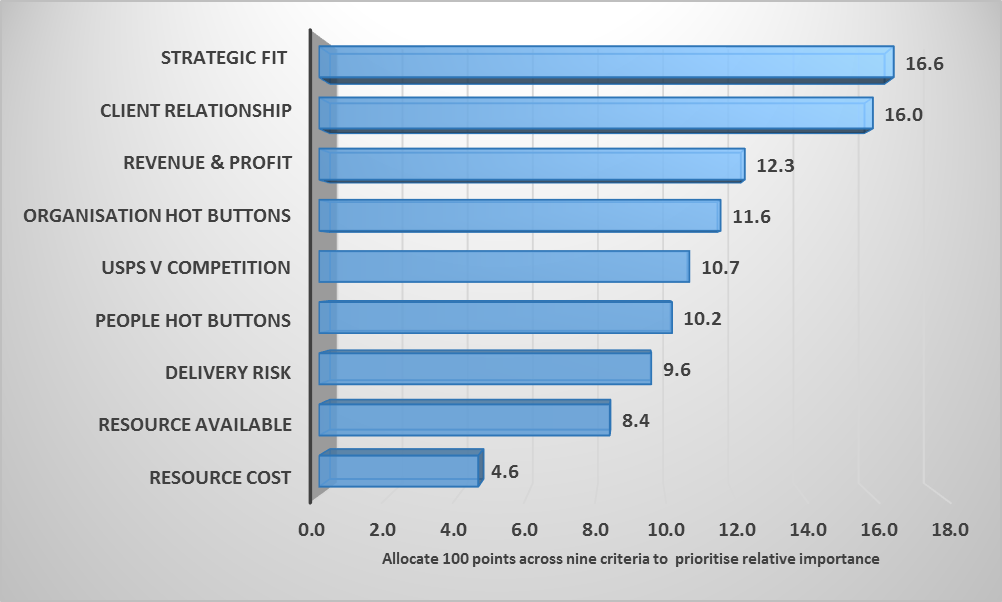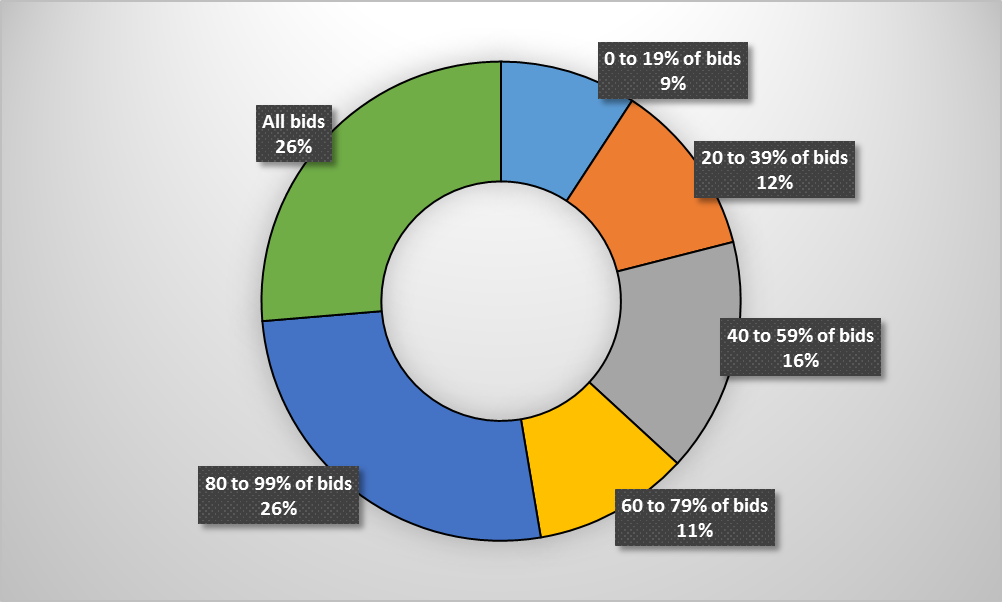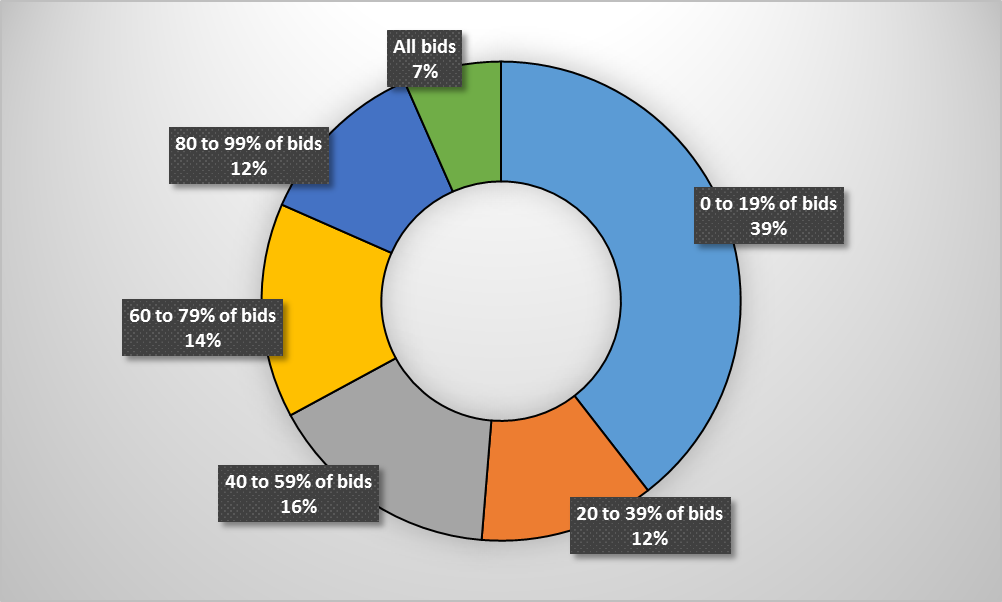Thanks to Duncan Gowing for this guest blog
After several years promoting the importance of effective “Bid or No Bid?” decisions with my employers, I wanted to obtain wider opinions about which bid qualification criteria are really the most important, across a range of organisations.
My “Bid Qualification Priorities” survey was publicised via the LinkedIn groups for Bid and Proposal Management Professionals, and the Association of Proposal Management Professionals (APMP), and a total of 102 responses were received.
Main Findings from the Bid Qualification Priorities Survey
Straightforward analysis of the survey results (see figure 1 as follows) shows some key points:
- Most respondents were from "large businesses" (76 of the 102)
- The highest-priority bid-qualification criteria on average were:
Strategic Fit of this opportunity with our market plan (17%)
Strength of Client relationship and influence (16%)
- The lowest-priority bid-qualification criteria on average were:
Availability of all required bid resources (8%)
Total cost of all required bid resources (5%)
Figure 1 - Highest Priority Bid Qualification Criteria

There was little variation in these relative priorities of the bid qualification criteria, either between small/medium companies and large companies, or between those bidding into public sector clients and private sector clients.
Survey Results: Qualification and Re-qualification
- Applying Bid Qualification in practice:
26% of respondents said that 100% of their new opportunities have a formal qualification decision before bid work starts
7% of respondents said that 100% of active in-flight bids being worked on, have a formal re-qualification decision to continue work through to submission
Figure 2.1 - What % of your bids go through a formal Qualification process to start work

Figure 2.2 - What % of your bids go through a Re-Qualification process to continue work

Survey Results: Estimated Cost of Bid
- Costs resulting from a Bid Qualification decision to bid:
The average estimated bid cost was 1.8% of total contract value, although this had a wide variation.
59% of respondents provided an estimated bid cost, the remainder did not know.
- Average Total Contract Value: £14.9m
- Average estimated Cost of Bid: 1.8%
Figure 3 - 60 estimates submitted for the cost of bidding
| Total Contract Value | % of TCV spent Bidding | Estimated Cost of Bid |
| Under £1m | 4.2% | £21,000 |
| £1m to £10m | 1.9% | £102,000 |
| £10m to £50m | 1.6% | £480,000 |
| Over £50m | 2.0% | £1,117,000 |
Conclusions from the Survey Results
Qualification Criteria Priorities
Higher average weightings given to the criteria for “Fit to our market” and “Client relationship” indicate these are the critical considerations in order to decide if a bid is worth winning, and has a high win chance.
Lower average weightings given to “Availability of bid resources” and “Cost of bid resources” indicate most organisations will find a way to resource and fund the required bid work, if it is decided the opportunity should be pursued.
The actual relative weightings to be applied to different qualification criteria should be decided within each organisation, dependent on its sales and market priorities. These must then be applied using a consistent qualification process across all opportunities, to reach effective and auditable “Bid or No Bid?” decisions.
Consistent and Effective Bid Qualification Tools
Making the best practice above actually happen requires an easily-understood Bid Qualification tool, with criteria and thresholds tailored to the individual organisation.The tool must be easy to understand and use, and the qualification process should be consistently mandated as the only way for sales teams to access the expensive resources needed to create and submit a formal bid.
All Bid Qualification (and re-qualification) decisions, and the reasons why, should be recorded. This will allow them to be reviewed later in the light of the eventual outcomes of the bids, so that learning can be applied to improve the ongoing effectiveness of the bid qualification process, with the objective to increase bid win rates.
Potential Opportunities and “The Luxury of Choice”
Applying best practice around Bid Qualification only makes a difference when your organisation has “the luxury of choice” – i.e. more potential opportunities than are needed to achieve revenue and profit targets. If you don’t have more than enough opportunities, then any qualification review outcome is very unlikely to be a No Bid decision. So the bid qualification approach and metrics must be properly aligned with the objectives and targets of the sales teams responsible for providing the pipeline of new business opportunities.
